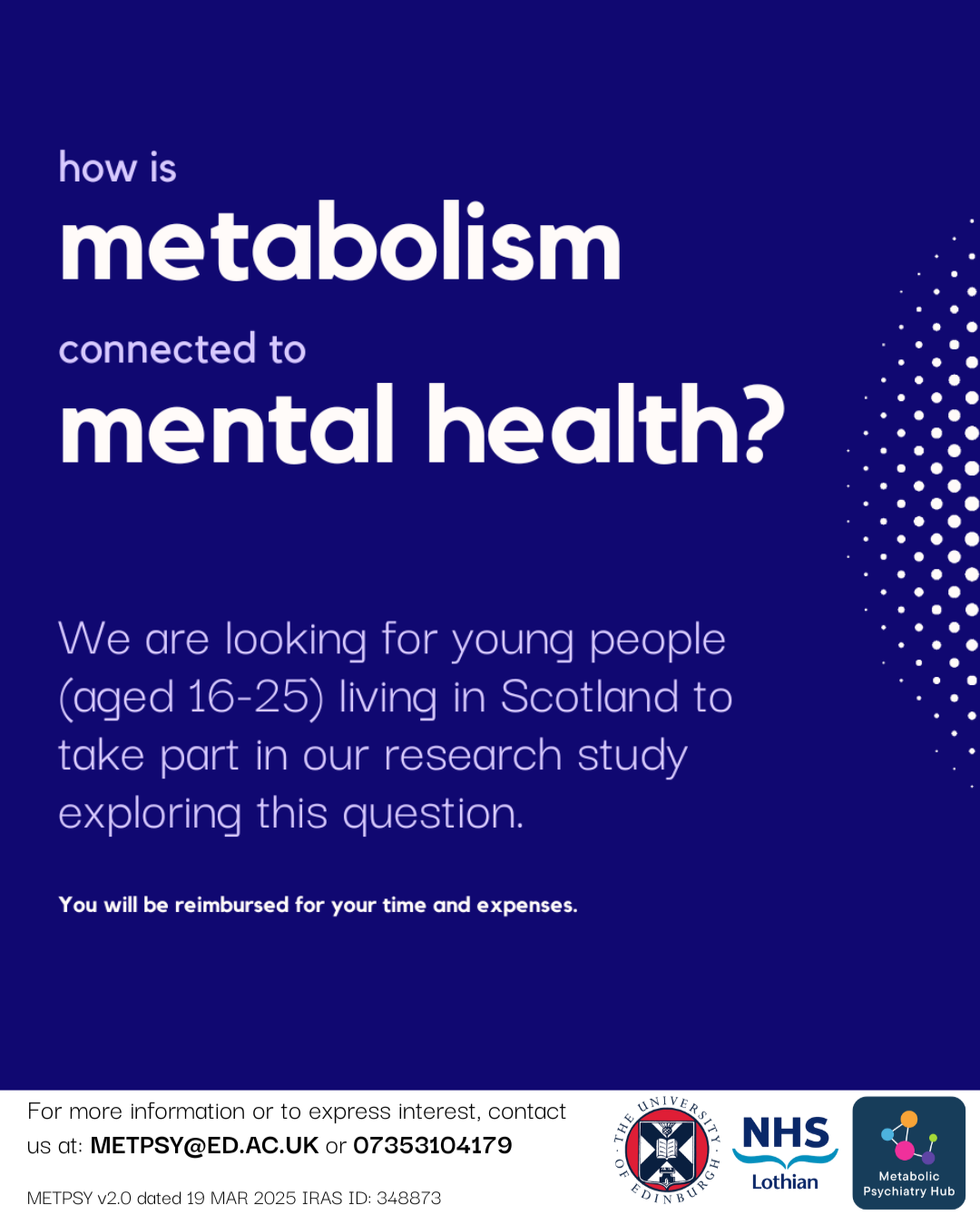New Opportunities to Participate In and Shape the Future of Research in Metabolic Psychiatry
April was a busy month for the Hub team with the launch of two new initiatives aimed at enhancing our understanding of the connection between metabolic and mental health. In this blog, learn more about the METPSY study and our Metabolic Interventions Priority Setting Partnership and how you can get involved in advancing research that better understands and addresses the needs of individuals living with severe mental illness.
Participate in the METPSY Study!
People with severe mental health conditions tend to have high rates of metabolic disorders such as type 2 diabetes, obesity, and heart disease. There is also some evidence that treatments for these metabolic disorders can help to improve mental health outcomes. More research is needed to fully understand the links between metabolism and mental health. This is why we are carrying out METPSY a study which seeks to better understand whether issues in metabolism (the processes through which our bodies break down food and produce energy) are linked to changes in mental health outcomes.
On the 1st April, recruitment opened for METPSY and we are now seeking young adults aged 16–25 living in Scotland, both with and without diagnoses of major depressive disorder, bipolar disorder, or schizophrenia to take part!
Over a 12-month period, participants will engage in:
Three in-person visits in Edinburgh involving questionnaires and blood samples.
Two remote assessment periods, each lasting two weeks, featuring app-based mental health questionnaires, activity monitoring via wristbands, and glucose monitoring patches.
Continuous sleep quality monitoring using a radar device placed in the participant's room.
Participants will be reimbursed for their time and travel expenses.
Contribute to the Metabolic Interventions Priority Setting Partnership!
Our Metabolic Interventions Priority Setting Partnership (PSP) Survey also launched mid-April! This survey is part of a Priority Setting Partnership that we are conducting in collaboration with the James Lind Alliance. The aim of the PSP is to identify the unanswered questions about metabolic interventions in people with SMI from people with lived experience, carers and health and social care professionals and then prioritise the questions that these people agree are the most important for research to address.
Taking part in the survey will help us to identify the top 10 research priorities in this space. These priorities will then help guide research that is meaningful and relevant to those most directly affected, supporting more effective and integrated care for both mental and physical health.
So, we we’d love to hear from you if:
Have lived experience of SMI.
Are a family member, friend or health/social care professional supporting someone with lived experience (doctor, nurse, therapist, dietitian, pharmacist, social worker, etc.)
The survey is anonymous, takes approximately 5 minutes to complete, and is open until 18th of May.
📝 To access the survey, please click on this link or scan the QR code on the poster below. Please take part and share your thoughts on the research questions that matter most! If you have any questions or need further materials, feel free to contact the PSP lead, Dina Farran, at dina.3.farran@kcl.ac.uk.
Why is this research important?
Both METPSY and the Metabolic Interventions PSP underscore the Hub for Metabolic Psychiatry’s commitment to integrating lived experiences into research and our aim to develop tailored, acceptable, and effective treatments at the intersection of metabolic and mental health. By taking part in these initiatives, you will be contributing to advancing research that seeks to better address the metabolic health needs of, and improve metabolic and mental health outcomes for, individuals with SMI.
For more details about both opportunities, please visit the Hub for Metabolic Psychiatry's Take Part page or get in touch with us at metabolicpsychiatry@ed.ac.uk




